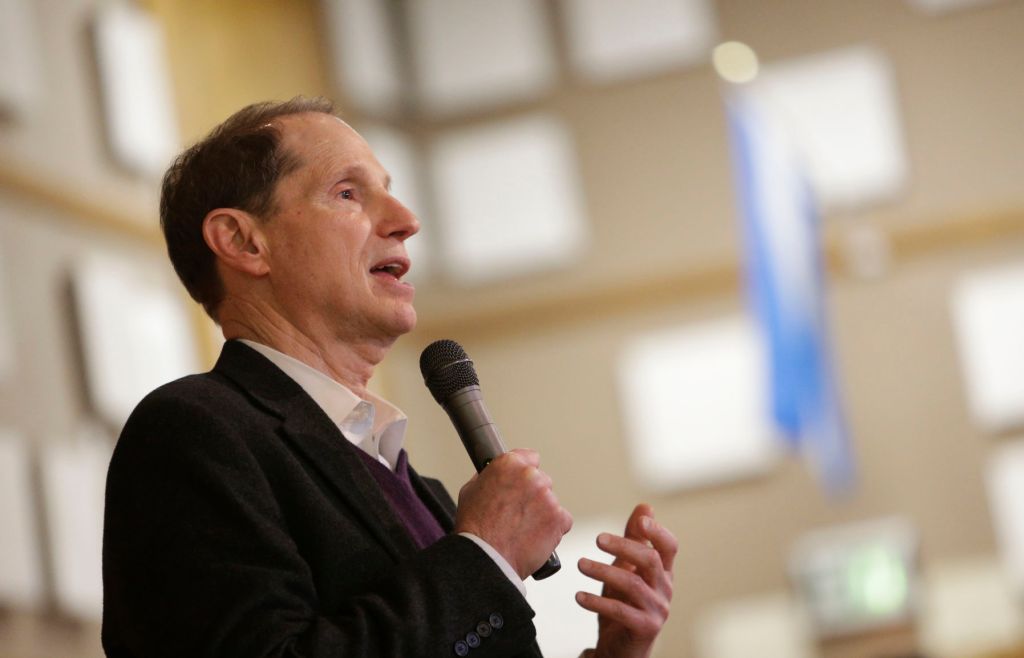Wyden talks mental health, forest, farms and more during town hall
Published 7:00 pm Thursday, May 6, 2021

- Oregon Sen. Ron Wyden held a virtual town hall Sunday, May 2, 2021, for residents of Umatilla, Union and Wallowa counties.
PENDLETON — Mental health issues and protections for family farms were some of the starter topics during a virtual town hall Oregon Sen. Ron Wyden held Sunday, May 2, for residents of Umatilla, Union and Wallowa counties.
The Democrat broached the topic during the first question of the day, asked by Umatilla School District Superintendent Heidi Sipe, about federal support for students as the country rethinks “nearly every aspect of education” following the pandemic.
Wyden addressed standardized testing, saying this year it seems best for teachers to address learning loss in the classroom rather than taking time out for standardized testing. He said schools will need additional funding to help students catch up after lost learning opportunities, and pointed out the American Rescue Plan includes funding for schools to do just that through summer learning opportunities and other strategies. He said he is also concerned about students’ mental health and wanted to see funding to adequately address those needs.
“I am very troubled by where we are with respect to mental health services, particularly for children, (and for) seniors in rural areas,” he said. “The mental health claims as a result of the pandemic have gone through the stratosphere.”
He revisited the topic after a question by Umatilla County Commissioner George Murdock, who said he was hearing from police who want to “get out of the mental health business” and wanted to know what Wyden was doing to address that issue.
Wyden said he knows police don’t want to be forced into acting as mental health counselors, but mental health professionals also don’t want to be forced into acting as police. So he has been pushing in the last year for Congress to pass the CAHOOTS Act, modeled after a program started in Eugene, that would fund partnerships between law enforcement and mental health professionals to form joint 24/7 crisis response teams. One billion dollars in seed money for a CAHOOTS-like program reimbursed through Medicaid was included in the American Rescue Plan.
Wyden said the topic is personal for him, because the Wyden household spent many years worried about the safety of his brother, who had schizophrenia and was often wandering the streets late at night.
Wallowa County Commissioner John Hillock expressed his concerns with President Joe Biden’s plan to conserve 30% of U.S. land by 2030. The federal government already owns 59% of Wallowa County, Hillock said, “a whopping 1.1 million beautiful acres.” He asked the senator if he would support a plan in Biden’s project to create community-owned forests instead of federally-owned forests that would achieve the same goals but under local control.
Wyden said he considers this “a really innovative idea,” and while Biden’s plan has targets, it’s the nut and bolts action to get there.
“In my view, any proposal has got to have local engagement,” Wyden said. “Local involvement has got to be at the front of it … to make sure communities are engaged and are consulted in a fair and transparent way.”
Wyden continued, saying he liked this idea of converting private forestland into a community forest project. He said the USDA already has the Community Forest Program that can help local governments get grants to buy forestland.
And as chairman of the Senate Finance Committee, he said he would look into this concept.
Amanda Hoey, CEO of the Oregon Wheat Growers League, asked what protections could be on the table when it comes to estate and capital gains taxes and to ensure one generation of Oregon farmers can pass their farm and equipment to the next.
Wyden said Biden has not proposed changes to the estate tax, but his proposed changes to taxing capital gains involves what happens when someone dies and specifically exempts family farms. And that proposal, Wyden said, targets billionaires who can pass on massive wealth.
He said the larger issue is the two taxes systems the U.S. has — one for billionaires who can postpone and put off taxes, and another for working Americans who pay taxes with every paycheck. Wyden said he would change that, and keep family farms at the forefront of that effort.
Randy Knop of Union asked Wyden to share how his vision of how the River Democracy Act, which would expand protections for rivers, would help counties and Oregon overall.
Recreation brings billions of dollars of revenue to Oregon, Wyden said, and in rural parts of the state it is a major economic multiplier. River democracy, he said, is a tool to protect these places, and the bill is just getting started.
During the town hall, Wyden also addressed questions on increasing racial equity in rural Oregon, student loan forgiveness and voting. In closing, Wyden described a “love affair” with Eastern Oregon, and said he wants to send a message that he opposes the idea voiced recently that some people want to see Eastern Oregon absorbed by Idaho.
“We are not giving up Eastern Oregon. It’s not going to happen on my watch,” he said.
A recording of the full town hall can be found on the People’s Town Hall Facebook page.




